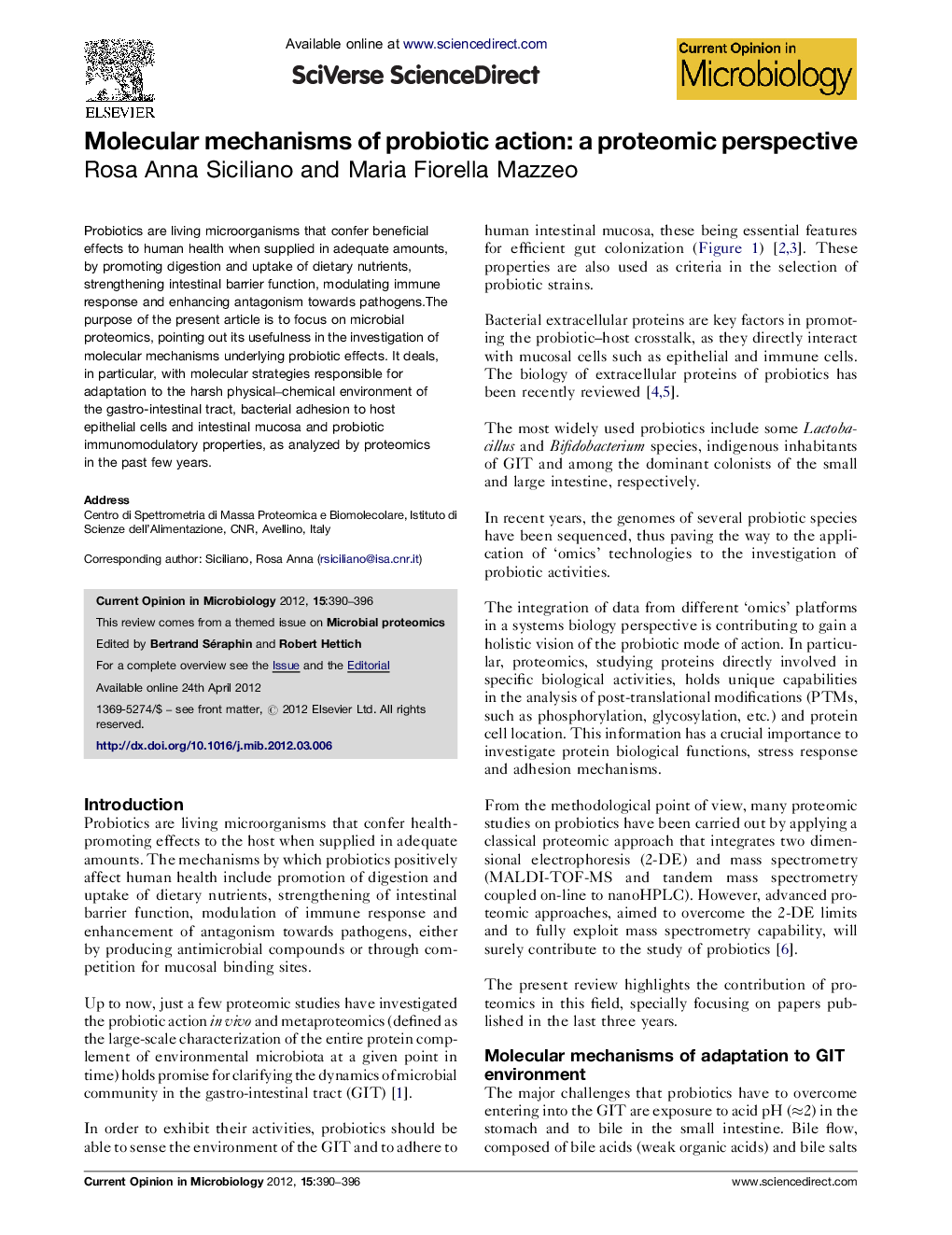| Article ID | Journal | Published Year | Pages | File Type |
|---|---|---|---|---|
| 3399271 | Current Opinion in Microbiology | 2012 | 7 Pages |
Probiotics are living microorganisms that confer beneficial effects to human health when supplied in adequate amounts, by promoting digestion and uptake of dietary nutrients, strengthening intestinal barrier function, modulating immune response and enhancing antagonism towards pathogens.The purpose of the present article is to focus on microbial proteomics, pointing out its usefulness in the investigation of molecular mechanisms underlying probiotic effects. It deals, in particular, with molecular strategies responsible for adaptation to the harsh physical–chemical environment of the gastro-intestinal tract, bacterial adhesion to host epithelial cells and intestinal mucosa and probiotic immunomodulatory properties, as analyzed by proteomics in the past few years.
Graphical abstractFigure optionsDownload full-size imageDownload high-quality image (291 K)Download as PowerPoint slideHighlights► Proteomics contributed to clarify mechanisms of adaptation to GIT environment. ► Proteomic and in vitro tests led to identify proteins involved in host-adhesion. ► Moonlighting proteins (ENO, GAPDH, EF-Tu, etc.) act as adhesion promoting factors. ► Several extracellular proteins have also immunomodulatory properties. ► Proteomics may have a role in selecting new strains with predictable functionality.
